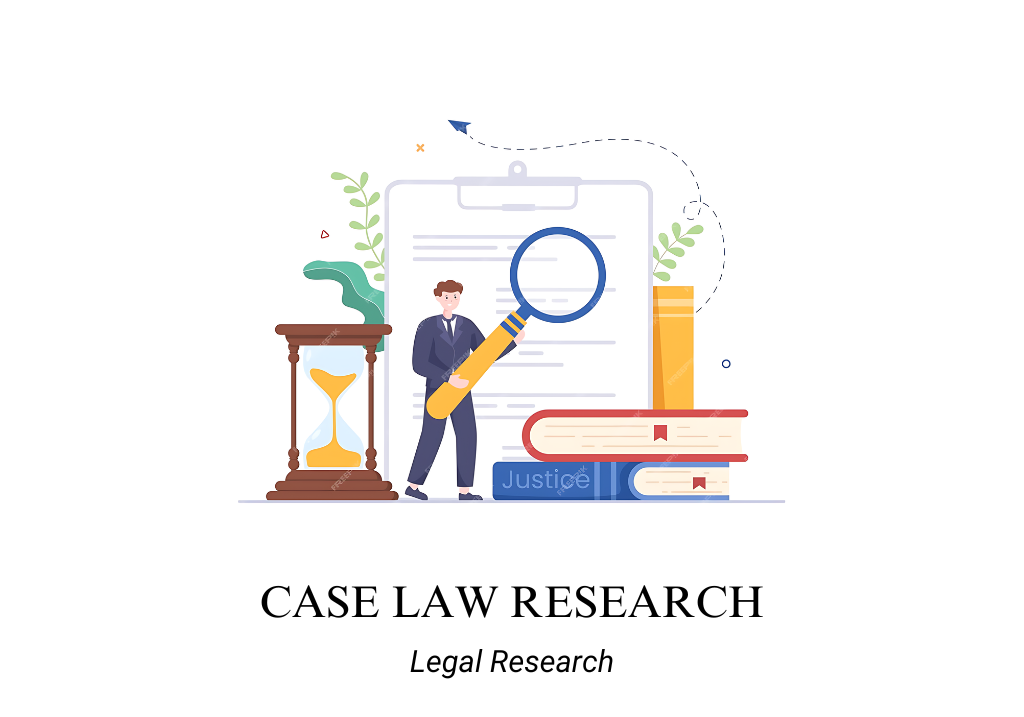Introduction
Meaning
Case law research is a functionality within legal research tools that allows legal professionals to find, analyze, and interpret judicial decisions relevant to specific legal issues. This process involves accessing a wide array of case law databases to identify precedents, interpreting rulings, and understanding how courts have applied the law in various contexts. Effective case law research is essential for legal practitioners to develop strong arguments, understand the legal landscape, and predict judicial outcomes based on previous rulings.
Purpose
The purpose of case law research is to provide legal professionals with the resources needed to locate and analyze relevant judicial decisions. By systematically exploring case law, legal teams can ensure that they are well-informed about relevant precedents and can craft arguments that are supported by existing legal authority. This functionality helps lawyers to build more persuasive cases, stay current with legal developments, and anticipate potential challenges based on how similar cases have been adjudicated.
Benefits
- Informed Legal Strategy: Provides access to relevant case law, enabling legal professionals to develop strategies based on established precedents.
- Efficient Research Process: Streamlines the process of locating and reviewing case law with powerful search tools, saving time and resources.
- Improved Legal Outcomes: Enhances the quality of legal arguments by grounding them in well-established legal authority and precedent.
- Comprehensive Legal Knowledge: Ensures that lawyers have access to a broad array of case law, including both recent decisions and historical rulings, for a well-rounded understanding of the law.
- Enhanced Compliance and Risk Management: Helps organizations ensure that their legal practices are aligned with current judicial interpretations and reduce the risk of adverse rulings.
CHECK MORE: Guide to find best Legal Research Tools
Features
Comprehensive Case Law Databases
- Meaning: Comprehensive case law databases provide access to an extensive collection of judicial decisions from various courts, covering a wide range of legal issues and jurisdictions. These databases include decisions from appellate courts, lower courts, and specialized courts, offering a robust foundation for legal research.
- Purpose: The purpose of comprehensive case law databases is to ensure that legal professionals have access to a broad spectrum of judicial opinions, allowing them to conduct thorough research across multiple legal contexts. This feature helps ensure that no relevant precedent is overlooked and that legal arguments are supported by a wide array of authoritative decisions.
- Use Cases:
- Litigation Preparation: A law firm uses comprehensive case law databases to research all relevant precedents before filing a motion, ensuring that their arguments are well-supported by case law.
- Appellate Review: An appellate lawyer leverages a comprehensive database to locate key rulings from various courts that could impact an appeal, providing a strong foundation for their legal brief.
Jurisdictional Filters
- Meaning: Jurisdictional filters are tools that allow users to narrow their search results based on specific jurisdictions, such as federal or state courts, appellate courts, or international tribunals. These filters help users focus on case law that is most relevant to their specific legal needs and the jurisdiction in which their case is being heard.
- Purpose: The purpose of jurisdictional filters is to streamline the legal research process by allowing users to quickly access case law that is pertinent to a particular jurisdiction. This feature helps legal professionals avoid irrelevant cases and ensures that they are relying on precedents that are directly applicable to their case.
- Use Cases:
- State-Specific Research: A lawyer handling a case in California uses jurisdictional filters to find relevant state court decisions, ensuring their legal arguments align with local precedents.
- Federal Court Filings: An attorney preparing for a federal court case uses jurisdictional filters to isolate decisions from federal appellate courts, focusing on rulings that are most likely to influence the outcome of their case.
Citation Search and Validation
- Meaning: Citation search and validation is a feature that allows users to locate specific cases by their citations and verify the current validity of those cases. This feature helps identify whether a case has been overturned, affirmed, or otherwise impacted by subsequent rulings, ensuring that the case law used is still authoritative.
- Purpose: The purpose of citation search and validation is to enhance the reliability and accuracy of legal research by ensuring that the cases cited are still good law. This feature helps legal professionals avoid relying on outdated or overturned precedents, which could weaken their arguments and negatively impact their case.
- Use Cases:
- Legal Brief Writing: A lawyer drafting a legal brief uses citation search and validation to confirm that all cited cases are still valid and authoritative, preventing the inclusion of discredited precedents.
- Pre-Trial Motions: An attorney preparing a motion checks the validity of all cited cases using citation search and validation to ensure their arguments are based on solid, up-to-date legal authority.
Historical Case Law Archives
- Meaning: Historical case law archives are collections of older judicial decisions that may no longer be readily accessible through standard databases. These archives provide access to historical rulings, enabling legal professionals to research the development of legal principles over time and understand the evolution of case law.
- Purpose: The purpose of historical case law archives is to provide a deeper understanding of the origins and evolution of legal doctrines. This feature is especially useful for cases involving longstanding legal principles or when a thorough examination of the judicial history is necessary to build a comprehensive argument.
- Use Cases:
- Constitutional Law Research: A constitutional lawyer uses historical case law archives to study the evolution of constitutional interpretations, supporting arguments with historical context and precedent.
- Academic Legal Research: A legal scholar accesses historical case law archives to analyze how legal principles have developed over decades, contributing to a more nuanced understanding of legal trends and doctrines.
Conclusion
These features within the case law research functionality are critical for ensuring comprehensive and effective legal research. By leveraging these features, legal professionals can efficiently locate relevant case law, validate the authority of their citations, and gain a deeper understanding of legal precedents, ultimately enhancing their ability to develop well-founded legal arguments and strategies.
CHECK OUT LEGAL RESEARCH TOOLS ON DIRECTORY OR CLICK HERE


